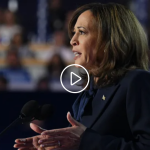This post will guide you through the latest events surrounding Puigdemont's reappearance in Barcelona, the implications of his actions, and the broader context of Catalonian politics. Whether you're a news enthusiast, a curious traveler with eyes on Spain, or a political analyst seeking to understand the dynamics of Spanish politics, this narrative promises to be as engaging as it is informative.
The Reemergence of a Controversial Figure
Carles Puigdemont's name is synonymous with Catalonia's quest for independence. The former Catalan president has been a polarizing figure since he led the region’s illegal independence referendum in 2017. His daring reappearance in Barcelona stirred excitement and anxiety alike, drawing thousands of supporters eager to catch a glimpse of a man who symbolizes defiance against Spanish authority.
Amid heightened tensions, Puigdemont took to the stage near Barcelona's iconic Triumphal Arch. Thousands gathered to hear him speak, chanting fervently in support of independence. The air was electric with anticipation, as many wondered what his presence might mean for the separatist movement and Spain's political landscape.
Operation Cage and the Lockdown of Barcelona
In response to Puigdemont's unexpected presence, Catalan police launched Operatiu Gabia—Operation Cage—swiftly sealing off Barcelona. Initially focused on city exits as they searched for a vehicle believed to transport Puigdemont, the operation quickly expanded to all highways across Catalonia, including those leading to France.
The lockdown was not merely a manhunt but a strategic move to prevent Puigdemont from evading justice once more. The city's bustling streets and vibrant atmosphere were replaced by checkpoints and a palpable tension, as residents and visitors alike grappled with the unfolding drama.
A Dramatic Disappearance
Despite the heavy police presence, Puigdemont managed to slip away after his rally, leaving authorities and supporters alike in suspense. His disappearance was swift, occurring moments after he had descended from the stage, shielded by a human barrier of loyal followers.
His vanishing act left many questions unanswered, particularly how he managed to evade capture in a city crawling with law enforcement. This move, reminiscent of his escape from Spain in 2017, further solidified his reputation as an elusive political figure willing to take bold risks for his cause.
The Political Climate in Catalonia
Puigdemont's return coincided with a crucial vote in Catalonia's parliament—a potential turning point after 14 years of separatist governance. The session, led by Socialist Salvador Illa, aimed to end the region's streak of independence-driven politics. Illa's speech, advocating for the Spanish government's amnesty bill, underscored the tension between Catalonia's desire for autonomy and Spain's insistence on unity.
Despite expectations that Puigdemont might appear in parliament to vote, his absence left political analysts speculating about his intentions. Was his reappearance a mere symbolic gesture, or a strategic maneuver to influence Catalonia's future from the shadows?
Why Puigdemont Matters
For supporters, Puigdemont embodies the spirit of Catalonia's independence movement—a symbol of resistance against perceived oppression by the Spanish state. His actions continue to inspire hope among those who seek a separate Catalan nation.
However, for others, Puigdemont represents a challenge to Spain's territorial integrity and rule of law. His defiance of Spanish authority raises questions about the limits of political dissent and the consequences of pursuing secessionist agendas.
The Path to Independence
Catalonia's quest for independence has been long and tumultuous, marked by moments of hope and setbacks. The 2017 referendum, declared illegal by Spain, was a watershed moment, setting the stage for Puigdemont's rise as a separatist icon.
Despite setbacks, the movement remains resilient. Catalonia's struggle for self-determination reflects broader global trends where regions seek greater autonomy, challenging the status quo of nation-states. Puigdemont's narrative is one of many that highlight the complexities of balancing regional aspirations with national unity.
The Role of International Politics
Puigdemont's presence in Brussels as a Member of the European Parliament underscores the international dimension of Catalonia's independence movement. His efforts to garner support on a global stage highlight the interconnectedness of modern politics, where regional disputes can have international repercussions.
European leaders have watched Puigdemont's actions with keen interest, aware of their potential impact on similar movements within their borders. The Catalonia issue serves as a reminder that questions of identity and governance transcend national boundaries, touching upon universal themes of democracy and sovereignty.
A City Transformed
Barcelona, known for its vibrant culture and history, found itself transformed into a focal point of political tension. The city's streets, typically bustling with life, bore witness to a different kind of energy as supporters and police engaged in a delicate dance of pursuit and evasion.
For travelers, the events in Barcelona offered a unique glimpse into the heart of a region grappling with profound questions of identity and destiny. The city's landmarks served as backdrops to a real-life drama that unfolded in real-time, captivating audiences worldwide.
What Lies Ahead for Catalonia?
The future of Catalonia remains uncertain, shaped by the actions of leaders like Puigdemont and the response of the Spanish government. Whether his reappearance marks a new chapter in the independence movement or a fleeting moment of defiance, its impact will be felt for years to come.
Political analysts continue to debate the implications of Puigdemont's actions, considering scenarios ranging from renewed negotiations to further confrontations. For now, Catalonia stands at a crossroads, with its people divided between dreams of independence and the realities of political compromise.
The Impact on Spanish Politics
Puigdemont's return reignited debates within Spain about the country's approach to regional autonomy. The central government's handling of the situation could set precedents for managing future challenges, not only in Catalonia but in other autonomous regions as well.
For political enthusiasts, the unfolding events offer a case study in the complexities of governance, where decisions must balance legal frameworks, public sentiment, and geopolitical considerations. Spain's response to Puigdemont will likely be scrutinized by observers seeking insights into the dynamics of modern statecraft.
Conclusion
Carles Puigdemont's brief but significant reappearance in Barcelona has once again thrust Catalonia into the international spotlight. His ability to captivate audiences and evade capture speaks to the enduring allure of his narrative—a story of resistance, identity, and the quest for self-determination.
For news enthusiasts, travelers, and political analysts, the events in Barcelona provide a rich tapestry of intrigue and insight. They serve as a reminder of the power of individuals to shape history, even in the face of daunting challenges.
As the story unfolds, one thing remains clear: the tale of Catalonia and Carles Puigdemont is far from over. To stay informed about this evolving drama, continue exploring the latest developments and analyses from trusted sources. Whether you're drawn to the region's cultural allure or its political complexities, Catalonia invites you to witness a narrative that is as timeless as it is timely.







